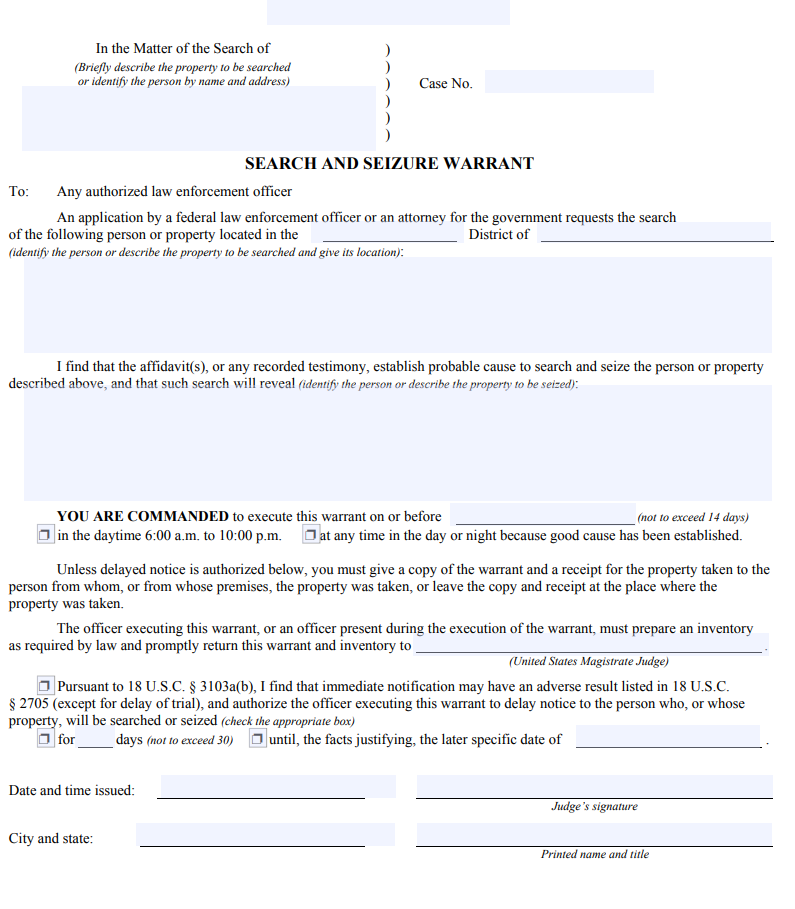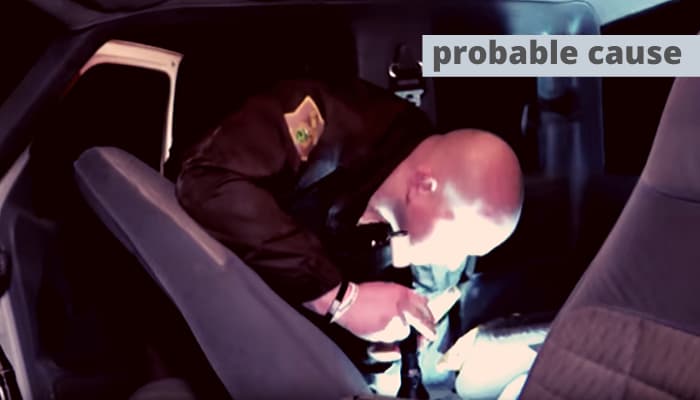The Carroll Decision Established That With Probable Cause
Which rule states that courts will not accept evidence obtained by unreasonable search and seizure. The Carroll decision established that with probable cause.

Challenging The Search Warrant In Texas Illegal Search And Seizure Dallas Justice Blog
Bhouses may be searched if the person was arrested in the house.
. Justice Story who delivered the judgment of the court said page 374. The vehicle would be gone before a search warrant could be obtained. Cindividuals associated with an arrested person may be searched.
The Carroll decision established that with probable cause a. Individuals associated with an arrested person may be searched. Individuals associated with an arrested person may be searched.
Automobiles may be searched based on their obvious mobility. 111 the question was whether the seizure of a French vessel at a particular place was upon probable cause that she was there for the purpose of smuggling. United States 1925 established that automobiles may be searched without a warrant if.
A search incidental to arrest must be confined to. Dautomobiles may be searched based on their obvious mobility. Houses may be searched if the person was arrested in the house.
Finally was there probable cause. Automobiles may be searched based on their obvious mobility the courts have ruled that when police take custody of a vehicle or other property the police. Officers may search the vehicle and any closed containers in it without probable cause or consent.
Automobiles may be searched based on their obvious mobility. Aautomobiles may not be searched unless consent is given. The Carroll decision established that with probable cause a.
The Carroll decision established that with probable cause. A way to determine if probable cause exists today is which test. Probable cause held to exist where prohibition officers while patrolling a highway much used in illegal transportation of liquor stopped and searched an automobile upon the faith of information previously obtained by them that the car and its occupants.
132 1925 Carroll v. There is probable cause for the search b. United States 267 US.
The Carroll decision Carroll v. In The Apollon 9 Wheat. The Carroll decision established that with probable cause.
Houses may be searched if the person was arrested in the house. If the facts and circumstances before the officer are such as to warrant a man of prudence and caution in believing that the. Automobiles may not be searched unless consent is given.
The Carroll decision established that with probable cause automobiles may be searched based on their obvious mobility The courts have ruled that when police take custody of a vehicle or other property the police. Probable cause for the search exists ie facts sufficient to warrant a man of reasonable caution in the belief that an offense is being committed6 This exception was first established by the Supreme Court in the 1925 case of Carroll v. United States 267 US.
Question 8 1 1 pts The Carroll decision established that with probable cause automobiles may not be searched unless consent is given. 132 1925 was a decision by the United States Supreme Court that upheld the warrantless searches of an automobile which is known as the automobile exceptionThe case has also been cited as widening the scope of warrantless search. The Carroll decision established that with probable cause.
United States7 and provides that if a law enforcement officer has probable. Automobiles may not be searched unless consent is given. If probable cause does not exist the officer may be able to obtain voluntary consent.
The Chimel decision established that a search incidental to a lawful arrest must be made simultaneously with the arrest. In this discussion Mr. The Supreme Court in Carroll defined probable cause as follows.
The Carroll decision established that with probable cause Automobiles may be searched based on their obvious mobility The courts have ruled that when police take custody of a vehicle or other property the police. The Carroll decision held that under the Fourth Amendment a valid search of a vehicle moving on a public highway may be had without a warrant but only if probable cause for the search exists4 The court then went on to rule that the facts presented amounted to probable cause for the search of the automobile there involved.

What Constitutes Probable Cause To Search A Vehicle Illinoiscaselaw Com

Carroll V United States Case Brief Video Lesson Transcript Study Com

What Is Probable Cause The Zeiger Firm

Basic Outline Of Fourth Amendment Search And Seizure Rules Helbraun Law Firm
Comments
Post a Comment